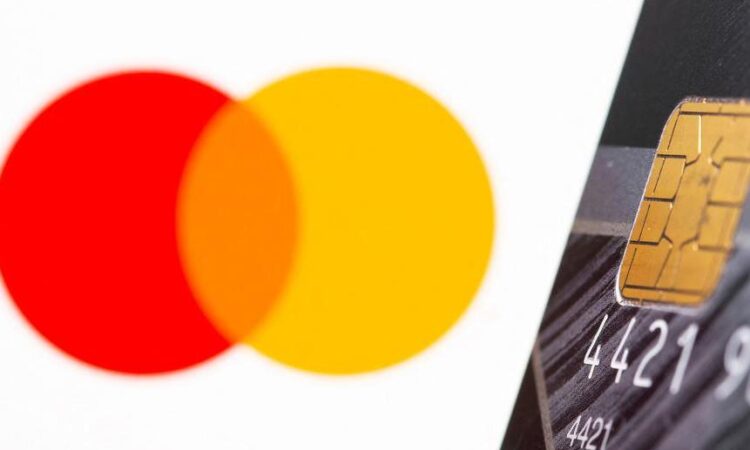
LONDON – Mastercard will expand its cryptocurrency payment card programme by seeking more partnerships with crypto firms, the company’s head of crypto and blockchain said, even as the sector comes under closer scrutiny from regulators and banks grow wary.
Mastercard has already partnered with crypto exchanges including Binance, Nexo and Gemini to offer crypto-linked payment cards in some countries. The Binance cards allow users to make payments in traditional currencies, funded by their cryptocurrency holdings on the exchange.
“We have dozens of partners around the world who offer crypto card programmes and they continue to expand,” Raj Dhamodharan, Mastercard’s head of crypto and blockchain, told Reuters on Thursday.
“Providing access to crypto in a safe way is also part of our value proposition and we’re continuing to do that.”
Banks have become wary of crypto clients after a number of big crypto firms collapsed last year, including the bankruptcy of major exchange FTX. Meanwhile, U.S. regulators are increasingly cracking down on what they say is a lack of compliance in the market.
In March, the U.S. Commodity Futures Trading Commission sued Binance, accusing the world’s largest crypto exchange of operating what the regulator called an “illegal” exchange and a “sham” compliance program.
Binance CEO Changpeng Zhao said the complaint contained an “incomplete recitation of facts”.
Dhamodharan declined to comment on Binance specifically, but said any card programme “goes through full due diligence” and is continuously monitored.
Some banks, including Santander and NatWest, limit the amount of money UK customers can transfer to cryptocurrency exchanges to protect consumers from scams and fraud.
In November, rival Visa severed its global credit card agreements with FTX. American Express – which had said in 2021 it would consider using crypto as a possible option to redeem reward points – said in February that it did not see crypto replacing its main payment and lending services in the near term.
Asked if Mastercard is considering imposing restrictions on the amount of money that could be transferred to crypto exchanges using its payments network, Dhamodharan said, “We’re not here to pick winners. We’re not here to pick which transaction should happen or shouldn’t happen.”
He added users of Mastercard’s network go through a number of compliance checks, adding that the company has invested in crypto analytics technology.
Mastercard is “really quite enthusiastic” about the underlying blockchain technology that powers cryptocurrencies, Dhamodharan said.
“We think more and more regulated money will come to this,” he said.
(Reporting by Elizabeth Howcroft, Editing by Louise Heavens)






